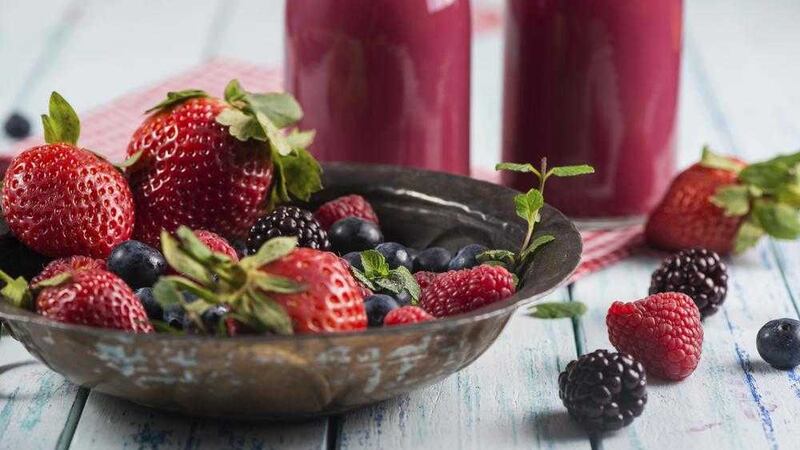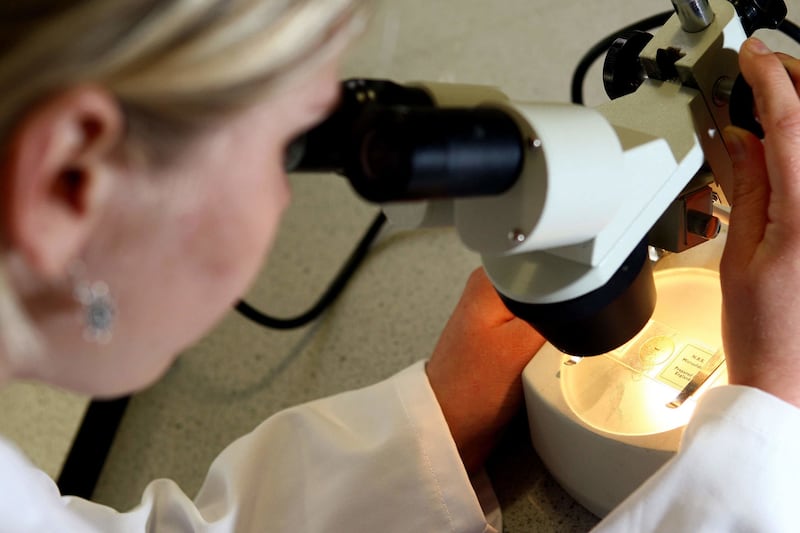MARCH is Colorectal Cancer Awareness month, so here are some pointers thought to help prevent this devastating disease.
All the normal rules apply of not eating too much red meat, especially processed meats, consuming a wide variety of fruit and vegetables, exercising regularly, not smoking, minimising alcohol consumption and avoiding too much stress.
Recent research has suggested that one of the greatest strategies to prevent colorectal cancer is to consume a variety of colourful berries.
More than 20 types of berries have shown incredible prevention abilities in defending against colorectal cancer, including strawberries, black and red raspberries, blackcurrants,
acai berries, blueberries, goji berries, lingonberries and cranberries.
These so called 'super berries' contain powerful antioxidants that create apoptosis – or 'cellular suicide' – a natural process that creates a fine balance between cell death and cell renewal.
Apoptosis only targets cancerous cells, leaving healthy cells alone.
Fantastically, the antioxidant concentration of berries is not easily disturbed by the digestive process and is highly available to the intestines. Many bioavailable compounds are concentrated in berries including flavonoids, phenolic acids, tannins, vitamins, stilbenes, and other nutrient-dense compounds.
Studies at the University of California found the best protection in six popular berries: blackberry, black raspberry, blueberry, cranberry, red raspberry and strawberry for their ability to stimulate apoptosis of the COX-2 colon cancer cell line.
The researchers also evaluated these berries for the prevention of oral, breast, colon and prostate tumour cell growth. They learned black raspberry and strawberry extracts had the most effective apoptosis-inducing effect.
Strawberries and raspberries also contain a unique phytochemical called ellagic acid, which has the power to prevent skin, bladder, lung, oesophagus and breast cancers.
The strawberry has many other benefits including being proven to prevent heart attacks in women.
In China, 36 participants at high risk for developing oesophageal cancer ate strawberries for six months and researchers found that consuming strawberries prevented oesophageal lesions from developing into tumours.
The volunteers drank freeze-dried strawberry powder mixed with water, since the freeze-dried process concentrates the benefits of the berries.
Researcher Tong Chen discovered that 29 out of 36 participants had lesions revert from moderate to mild after six months of consuming two ounces of strawberries a day.
Lingonberries are a Swedish berry that have been used for centuries both as food and as medicine. Also known as foxberries or cowberries, these tart red berries can be eaten raw or they can be processed into jam or syrup.
The purported medicinal properties and nutritional benefits of whole lingonberries and lingonberry juice have been attributed to a wide range of beneficial compounds including quercetin and proanthocyanidin, also abundant in cranberries.
They are available to buy on the internet and at Ikea.
The health benefits of blueberries are abundant whether they are fresh or frozen. Since their antioxidant power isn't diminished by freezing, you can enjoy them year-round, and they are often much cheaper frozen.
They are a fruit that it is worth going for organic, as researchers compared traditionally grown to organically grown berries and discovered that the organic variety had more phenol and anthocyanin antioxidants overall.
Blueberries are naturally nutrient dense for a fruit. That means they are low in calories while they provide excellent levels of fibre, vitamin C, vitamin K, copper and manganese.
In fact, they are believed to provide the highest concentration of antioxidants, anthocyanins, catechins and other polyphenols available in commonly consumed fruits and vegetables. Their water content also provides excellent hydration to every cell.
Some teas can also help prevent cancer. Along with green tea and others like oolong and some mushroom teas, very promising studies have shown that extracts of the dandelion flower, leaves, and root – all of which are used to make healthy teas – contain bioactive compounds with potential anti-cancer properties.
In studies, dandelion root extract was found to kill aggressive, treatment-resistant human pancreatic cancer cells without harming non-cancerous cells.
The lethal and fast-acting skin cancer melanoma is known to be resistant to immunotherapy, radiation therapy, and chemotherapy. The only known way to treat it is surgical removal after early detection.
Promisingly, dandelion root extract has been shown to kill human melanoma cells, once again without harming non-cancerous cells.
It is important to remember that these studies on dandelion root extract have only been carried out in isolated cancer cells in laboratory conditions. The only way to know how effective dandelion root extract can be against various forms of cancer is to test it in human clinical trials.
Until that happens, health experts say that it is perfectly fine to drink a cup or two of dandelion flower, leaf, or root tea daily as a preventive therapy, because of its near-complete lack of toxicity.
However, if you are currently being treated for a health condition, you should always consult your physician before drinking such teas.
:: r.armstrong@irishnews.com








